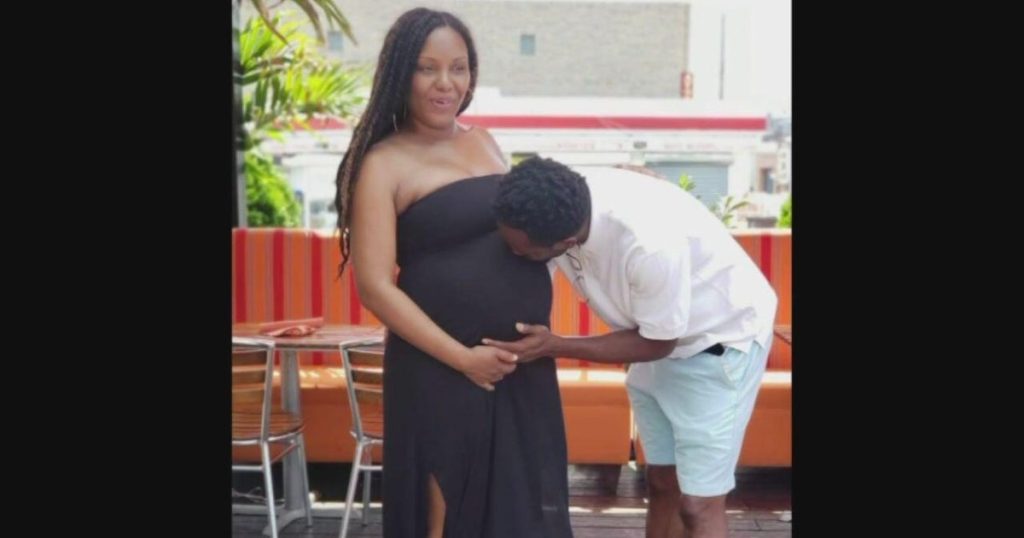Massachusetts has some of the best health care in the country, but it’s far from perfect. Black women in particular experience complications during childbirth two-and-a-half times more often than their white counterparts, and they face a pregnancy-related death rate that’s more than three times the rate of white mothers.
Researchers at at the Center for Black Maternal Health and Reproductive Justice at Tufts University School Of Medicine are searching for ways to prevent these kinds of tragedies, and they’re already seeing results.
“We need to figure out how to tell the stories”
Like any excited mother-to-be, Shamony Gibson was looking forward to expanding her family. Already a proud mother of one and expecting her second, she and her partner, Omari Maynard, were ready to welcome their son into the world.
“We figured this out, you know. We understand what it takes to be able to co-create and build and be a family and you know, so our future felt really bright,” Maynard said.
Sadly, Gibson died from a blood clot in her lungs as a complication from an unplanned C-section.
Just 13 days before her death, Gibson made a video for her unborn child, saying, “I’m excited for you to be born tomorrow.”
“Didn’t know, of course, that that would be the last video that we made together, and that that video would document the first time, and I want to say possibly the last time, that, you know, she had a conversation with her son,” Maynard said.
Despite his heartbreak, Maynard hopes his loss will lead to change.
“If we’re going to really shift and help redirect birthing outcomes and really want to see change within this maternal health epidemic, we need to figure out how to tell the stories of all these Shamonys,” he said.
MOTHER Lab founder says racial disparities are costing lives
The MOTHER Lab, a unit within the Center for Black Maternal health and Reproductive Justice, looks at racial disparities in maternal health care. Founder and director Dr. Ndidiamaka N. Amutah-Onukagha says those disparities can have deadly consequences.
“Your place of delivery makes a difference in your outcomes. What you have access to, the quality of the physicians, the quality of the resources,” she said. “These lapses and biases, frankly, are costing people their lives.”
In 2023, a state Department of Public Health report revealed the rates of severe maternal morbidity in Massachusetts rose 25% over the last decade.
“Putting faces behind statistics, because we all know, like, that Black women are three to four times more likely to die in childbirth than their white counterparts,” research assistant Emily Teixeira said.
MOTHER Lab’s research has already helped implement change in Massachusetts.
Last summer, Gov. Maura Healey signed the “Momnibus Bill,” which promotes access to midwifery care and out-of-hospital birth options.
But Amutah-Onukagha knows there’s still work to be done.
“It also reinvigorates you for the work because we need to be really clear and really vigilant about not only how Black women, frankly, the health care system is failing all women,” she said.
Amutah-Onukagha says all of this is easily prevented and that’s why they’re raising awareness with their Eighth Annual Black Maternal Health Conference this weekend ahead of Black Maternal Health Week next week. More information can be found at motherlab.org.



